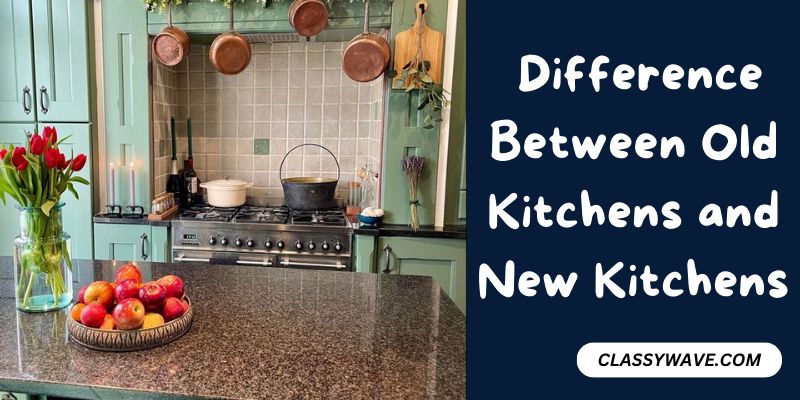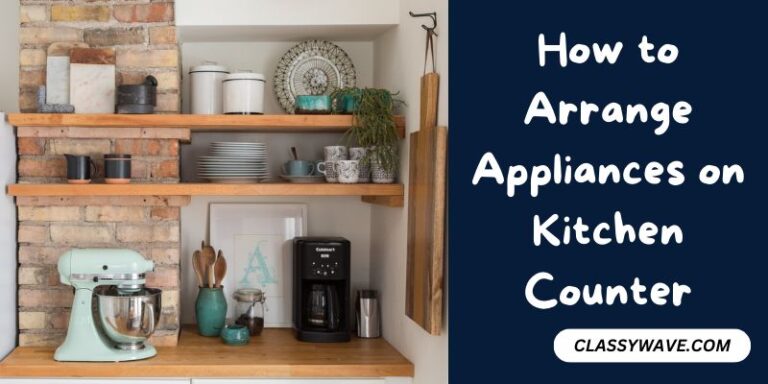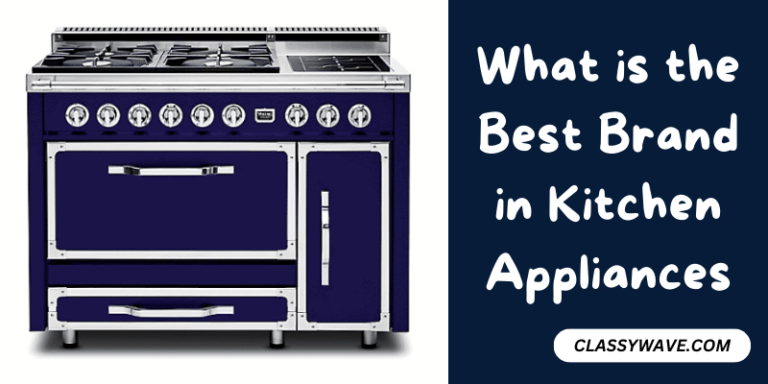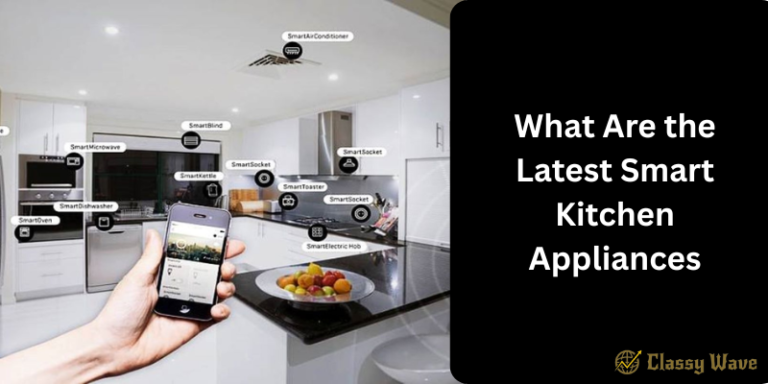What is the Difference Between Old Kitchens and New Kitchens?
In the heart of every home, the kitchen stands as a testament to the evolution of design, technology, and lifestyle. As we explore the stark differences between old kitchens and their modern counterparts, it becomes clear that the kitchen has transformed from a purely utilitarian space to a hub of innovation and comfort.
Introduction
A. Definition of Old Kitchens
In the days of yore, kitchens were functional spaces, often tucked away in the back of the house, hidden from the eyes of guests. These spaces were characterized by basic appliances and minimal design aesthetics.
B. Definition of New Kitchens
In contrast, modern kitchens are designed with both functionality and aesthetics in mind. They are often open-concept, seamlessly integrated into the living space, reflecting the shift towards a more communal lifestyle.
C. Importance of Kitchen Evolution
The evolution of kitchens is not merely a reflection of design trends but a response to changing lifestyles, technological advancements, and a growing awareness of environmental concerns.
Design and Layout
A. Traditional Layout vs. Modern Design
Old kitchens typically adhered to a closed and compartmentalized layout. In contrast, modern kitchens embrace open designs, fostering a sense of connectivity with the rest of the home.
B. Use of Space and Storage Solutions
The limitations of space in old kitchens led to clutter and disorganization. New kitchens, on the other hand, boast innovative storage solutions and efficient use of every inch of space.
Appliances and Technology
A. Outdated Appliances in Old Kitchens
Old kitchens were equipped with basic, often outdated, appliances that were more about function than efficiency or style.
B. Smart Technology in New Kitchens
Modern kitchens feature smart appliances, offering convenience and energy efficiency. From refrigerators with touch screens to voice-activated assistants, technology plays a pivotal role.
C. Energy Efficiency
The ecological impact of old kitchens is a growing concern, with energy-inefficient appliances contributing to higher utility bills. New kitchens prioritize energy efficiency, reducing both costs and environmental footprint.
Materials and Finishes
A. Vintage Materials in Old Kitchens
Old kitchens boasted vintage charm with materials like linoleum, checkered tiles, and pastel-colored cabinetry.
B. Contemporary Materials in New Kitchens
Modern kitchens showcase sleek, contemporary materials such as granite countertops, stainless steel appliances, and minimalist cabinetry.
Cost Considerations
A. Initial Cost of Old Kitchens
While old kitchens may seem economically favorable initially, the long-term costs associated with outdated appliances and constant repairs often outweigh the initial savings.
B. Long-Term Investment in New Kitchens
Investing in a modern kitchen is not just a splurge; it’s a long-term investment. The durability of modern materials and energy-efficient appliances pays off in the years to come.
Environmental Impact
A. Sustainability in New Kitchen Design
Old kitchens often relied on materials and practices that were less than environmentally friendly. New kitchens prioritize sustainability with eco-friendly materials and energy-efficient appliances.
B. Environmental Concerns of Old Kitchens
From non-recyclable materials to energy-draining appliances, old kitchens contribute to environmental issues. Upgrading to a modern kitchen is a step towards a greener lifestyle.
Maintenance and Upkeep
A. Challenges in Maintaining Old Kitchens
The wear and tear on vintage materials and outdated appliances pose challenges in maintaining the functionality and aesthetics of old kitchens.
B. Easy Maintenance of New Kitchens
Modern kitchens are designed for easy maintenance, with durable materials and appliances that are built to withstand the test of time.
Personalization and Trends
A. Limited Options in Old Kitchens
The limited availability of styles and materials in old kitchens restricted personalization. Modern kitchens offer a myriad of design options, allowing homeowners to express their individuality.
B. Customization and Trends in New Kitchens
From custom cabinetry to unique backsplash designs, modern kitchens are a canvas for personal expression. Keeping up with design trends is easier in a space that embraces change.
Lifestyle Changes
A. Impact of Changing Lifestyles on Kitchen Design
As lifestyles become busier and more interconnected, the role of the kitchen has evolved from a secluded workspace to a central hub for family and social gatherings.
B. Flexibility in New Kitchens
Modern kitchens are adaptable to changing needs, offering flexibility in design and functionality to accommodate evolving lifestyles.
Resale Value
A. Resale Value of Homes with Old Kitchens
Homes with outdated kitchens may struggle in the real estate market, as buyers are often drawn to modern amenities and contemporary design.
B. Modern Kitchens and Property Value
Investing in a modern kitchen can significantly enhance the resale value of a home, making it a wise financial decision.
Future Predictions
A. Anticipated Changes in Kitchen Design
Experts predict continued innovation in kitchen design, with a focus on sustainable practices, smart technology, and adaptable spaces.
B. Technological Advancements
As technology continues to advance, the integration of artificial intelligence and smart features will become increasingly common in kitchen design.
Case Studies
A. Before and After: Old Kitchen Renovations
Explore inspiring transformations as homeowners breathe new life into their old kitchens through thoughtful renovations.
B. Success Stories of Modern Kitchen Transformations
Discover success stories of individuals who have experienced the benefits of upgrading to a modern kitchen, from increased functionality to enhanced aesthetics.
Tips for Upgrading
A. Budget-Friendly Upgrade Ideas
Not all kitchen upgrades need to break the bank. Explore cost-effective ideas to refresh your kitchen without draining your savings.
B. DIY vs. Professional Remodeling
Deciding between a do-it-yourself project and hiring professionals? Consider the pros and cons of each approach to make an informed decision.
Expert Insights
A. Interviews with Kitchen Design Experts
Gain valuable insights from industry experts on the latest trends, materials, and technologies shaping the future of kitchen design.
B. Advice for Homeowners Considering Upgrades
Experts share practical tips and advice for homeowners embarking on the journey of upgrading their kitchens.
Conclusion
A. Summarizing Key Differences
In conclusion, the difference between old kitchens and new kitchens goes beyond aesthetics. It’s a reflection of our evolving lifestyles, technological advancements, and a growing consciousness about sustainability.
B. Encouraging Kitchen Renovations for a Modern Lifestyle
For homeowners contemplating a kitchen upgrade, the benefits extend beyond the surface. Embracing modern kitchen design enhances not only the functionality and aesthetics of your space but also contributes to a more sustainable and future-ready home.
FAQs
Q: Are modern kitchens more expensive than renovating an old kitchen?
A: While the initial cost may be higher, the long-term investment in modern kitchens often outweighs the continuous expenses associated with maintaining and repairing old kitchens.
Q: How can I make my kitchen more environmentally friendly?
A: Opt for eco-friendly materials, energy-efficient appliances, and sustainable practices in your kitchen design to reduce your environmental impact.
Q: What are some budget-friendly ideas for upgrading my kitchen?
A: Consider simple changes like repainting cabinets, updating hardware, or adding new lighting fixtures for a cost-effective kitchen upgrade.
Q: Can I upgrade my kitchen on my own, or should I hire professionals?
A: The decision depends on the scope of the project and your skill level. Small changes may be suitable for DIY, but larger renovations may require professional expertise.
Q: How do smart appliances enhance the kitchen experience?
A: Smart appliances offer convenience through features like remote operation, energy monitoring, and integration with other smart home devices, making daily tasks more efficient and enjoyable.







